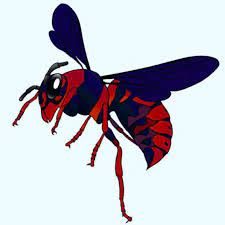by Lexie Reid
I am an 18-year-old college student and athlete, and I have suffered from mental health issues since I was in
high school. I specifically have had trouble with anxiety and depression, primarily in my senior year of
high school and freshman year of college. Originally, I kept most things to myself and decided it was best
to tackle them on my own. However, I chose to reach out to someone as it continued to debilitate me and
steer me from daily tasks. It was most difficult for me to reach out due to the consistent stigma
surrounding mental health and mental health in athletes. I feared that others would judge me or look down
on me for how I was feeling. Once I got help, I was able to see the number of people who also suffer and
who don’t reach out due to similar fears. I found that it was far more beneficial for me to reach out and
communicate with someone about how I was feeling, instead of bottling it up and taking care of it myself.
My story is not entirely unique or unheard of, Athletes for Hope writes that approximately 33% of
student-athletes experience significant symptoms of depression, anxiety, or other mental health conditions
(1). Out of this 33%, only a mere 10% seek help (1). Furthermore, the NCAA exclaims that following
Covid-19, there was a 150-210% increase in mental health rates among college athletes (2). With these
numbers, mental health is becoming more and more of a problem. As mental health rates increase, so do
the risks of suicides, substance abuse, and social isolation.
When looking at the increasing rates and the risks that come with them, it is important to acknowledge what is being done to fix this right now. There are many varying organizations and programs that are taking charge to eliminate the stigma and silence surrounding mental health in both student-athletes and students in general. Depression and anxiety are a problem that is harming millions of individuals and can be identified through warning signs such as a loss of energy, lack of motivation, feelings of hopelessness, and feelings of constant nervousness. If you or
someone you know is experiencing or struggling with these symptoms, reach out and seek the help that is
needed.
As I previously mentioned, there is a multitude of organizations and groups attempting to solve
the problem of mental health by bringing awareness and decreasing stigma. My primary example,
specifically for athletes, is The Hidden Opponent organization which centers around bringing awareness to
mental health in athletes (3). They advocate, educate, and support individuals around the world (3). They
specifically aim at student-athletes in college and share personal stories from student-athletes everywhere
(3). They provide resources for individuals to reach out for help and they aim to eliminate negative
stigmas involving mental health (3). You can help eliminate the stigma surrounding reaching out for help
by attempting to educate your peers about the topic further. Reaching out for help can come in many
varying forms whether it be through a smaller source or a larger source. Smaller sources can include
peers, family members, or even authority figures such as teachers. Larger sources can include contacting
the National Suicide Prevention Hotline or considering talking to a professional. By simply educating
your peers on how to reach out, how to help out, and what mental health is, you can be the start to
eliminating the never-ending stigma.
As an individual, you can donate right now to The Hidden Opponent organization
(https://thehiddenopponent.com/donate/) in order to fund research and take one step further toward eliminating
the stigma surrounding mental health (3).
Resources:
- Causeway: Non-profit athletes: Athlete charities . Athletes for Hope. (2021, December 15).
Retrieved February 19, 2022, from https://www.athletesforhope.org/what-we-do/causeway/ - Mental health. NCAA.org. (n.d.). Retrieved February 19, 2022, from
https://www.ncaa.org/sports/2021/2/10/sport-science-institute-mental-health.aspx - Our mission. The Hidden Opponent. (2021, February 2). Retrieved February 19, 2022, from
https://thehiddenopponent.com/blog/ - Centers for Disease Control and Prevention. (2021, July 20). CDC Mental Health. Centers for
Disease Control and Prevention. Retrieved February 19, 2022, from
https://www.cdc.gov/mentalhealth/index.htm
Categories: Featured, Mental health, Sports

